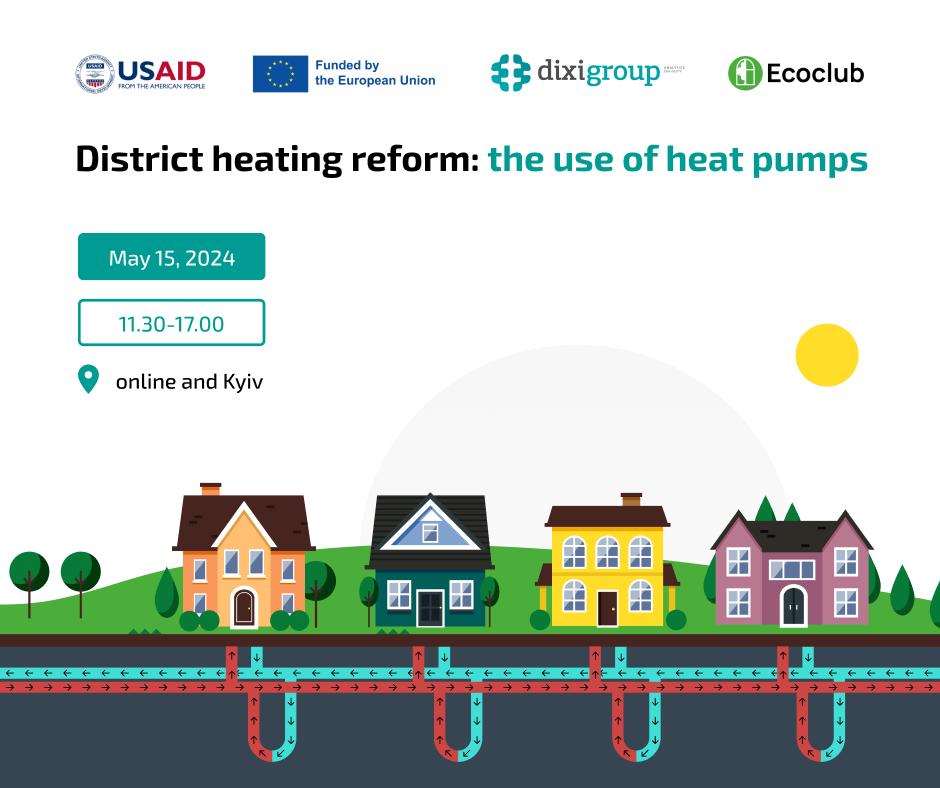The number of district heating customers in Ukraine has halved in recent decades. This has been driven by imperfect government policies, a lack of proper maintenance, growing gas debts of district heating companies, and low tariffs. Consequently, this has led to worn-out networks with heat losses of up to 20-30%.
Should Ukraine abandon district heating? What European experiences can Ukrainian municipalities adopt?
These and other issues will be discussed at the conference District Heating Reform: Use of Heat Pumps.
When? May 15th, from 11:30 to 17:00
Where? Online and offline in Kyiv
For whom? Representatives of local governments, relevant government agencies and utilities, journalists, business and industry experts, and all interested parties.
Register by following the link: https://bit.ly/49QZ0VY
Languages: Ukrainian, English (with simultaneous interpretation)
Also during the event:
– Discuss the current state of district heating, its advantages, and the importance of use.
– Hear the successful experiences of foreign partners from Europe and the USA.
– Learn about positive cases in Ukraine, how and what can be implemented during the war, and how to scale it up.
Speakers include representatives of the Ministry of Energy of Ukraine, the Ministry of Infrastructure of Ukraine, the National Energy and Utilities Regulatory Commission, the State Agency on Energy Efficiency and Energy Saving, the European Committee of the Regions, the European Geothermal Energy Council (EGEC), ReWarm Ukraine, district heating companies, representatives of Ukrainian communities, and others.
The event is organized by the DiXi Group think tank and the NGO Ecoclub. The event is supported by the United States Agency for International Development (USAID) as part of the Energy Sector Transparency Project, implemented by DiXi Group and the European Union within the framework of the project “Closing the Loop: A Just Energy Transition Designed by Cities and Regions.” The content of the event is the sole responsibility of DiXi Group and Ecoclub and does not necessarily reflect the views of the United States Agency for International Development (USAID) or the European Union.













